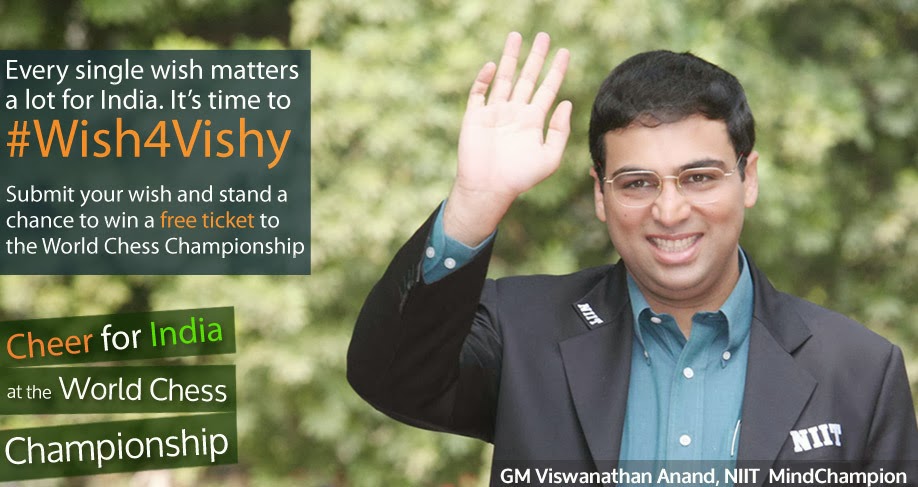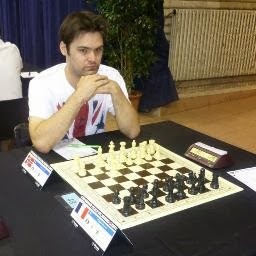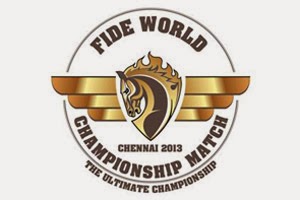End Game?
Writing for The Sunday Express ahead of next week's World Championship final in Chennai, British Grandmaster and former World Championship finalist NIGEL SHORT predicts a generational shift in chess with Magnus Carlsen prevailing over Viswanathan AnandEvery once in a while, in the history of the World Chess Championship, comes a moment — such as Steinitz-Lasker 1894, Lasker-Capablanca 1921 and Kasparov-Kramnik 2000 — when the power passes palpably from one generation to the next. Without wishing to cause distress to the readers of The Indian Express, I venture to suggest that we are at another turning point now. This is by no means to imply that Viswanathan Anand will not fight like a tiger against the brilliant, young Norwegian Magnus Carlsen or that the defeat of the older man is a foregone conclusion. Nevertheless, it is hard to recall any other match in recent decades where the defending champion has begun with his back so firmly pressed to the wall.
This trenchant opinion may come as something of a jolt to the casual home fan: after all, isn't Anand a giant of the game? Indeed, he is. Precociously talented as a youth, he added guile and experience, over the years, to take him to an astonishing five world championship victories, in three different formats. His demolition of Vladimir Kramnik in 2008 was the pinnacle of these great achievements, which have rightfully earned him a prominent place in the chess pantheon, even if he never pushes a pawn again.
Despite a tremendous career record, it has been painfully obvious that Anand has really struggled over the past three years — which is why he has slid from number 1 in the world rankings to number 8 during this period. While he doesn't lose that often (an important quality in match-play) wins against very strong players have become exceedingly rare.

Click photo to join Nigel Short's twitter feed.
Carlsen, however, loses even less frequently against the elite but, in stark contrast, notches up his victories at a brisk strike rate. Vishy recognised that the problem was bordering on a full crisis and wisely vowed to play more frequently this year, in an attempt to remedy matters.
LONE HIGH
These efforts were partially rewarded by, among other things, a satisfying triumph in Baden Baden back in February. But like a once towering batsman who finally hits a century after a very long interval, sometimes a success only serves to emphasise the depths to which a person has sunk: this was Anand's first classical chess tournament victory in 5 years.
Furthermore, although his play has been relatively better in 2013, he has been unable to maintain consistent form. Much has been made by the optimists in the Indian media of Anand's positive lifetime score against Carlsen. While this statistic is not irrelevant, it is hardly surprising when one considers that Anand was already a top player before his antagonist was even born. Recent results, however, have been less flattering, and he got an absolute drubbing at the Tal Memorial.
Anand's last title defence was at the Tretyakov Gallery in Moscow last year when he narrowly beat off a challenge from Boris Gelfand. While the vastly experienced, highly competent and famously hard-working Israeli is justly esteemed by his peers, in truth he was about as soft an opponent as Anand could possibly hope for in a World Championship Final. Brutally put, he probably lacked the extra spark that is necessary to scale the ultimate summit.
Furthermore, at 43 years of age, he was even older than the champion. Despite such a favourable pairing, Anand barely stumbled over the line, winning just one of the 12 classical chess games before prevailing in the rapid chess. With such unconvincing form, he would probably have lost to Aronian, Kramnik or even Grischuk — never mind Carlsen.
So what has gone wrong? Firstly, the most obvious point is that, at nearly 44, Anand is no longer a spring chicken. In chess terms, he could be considered a veritable dinosaur (incidentally, your 48 year-old writer is the oldest player in the top 100). Concentration wavers in middle-age in a manner it does not when you are in your physical prime. One lapse and you are on your way back to the pavilion. Secondly, motivation sags over time. When you have already achieved everything you could wish for professionally and you have as much money as you need for a good life, other things become more important — particularly when you have a young child. Success in all sport requires sacrifice and pain: most people tire of it eventually.
BEST AND THE REST
I hope to say a lot more about the phenomenal Magnus Carlsen — the highest rated player in chess history — and the problems and challenges he will face (and notwithstanding all that I have said, there will be plenty) in another article. Technically speaking, the significance of his enormous rating is not the absolute number (which cannot properly be compared to other eras due to persistent inflation over the past quarter of a century) but the huge gap which he has opened on everyone else.

With Vishy now languishing in a modest spot down the world rankings, the Nordic iceman leads by a whopping 95 rating points, which suggests, statistically, a very comfortable win (63% to 37%). Crude numbers by no means tell the whole story, but they do offer an insight into the scale of challenge that Anand now faces. He can overcome the odds, but he is going to have to strain every atom in his body to do so. Even that may not be enough.Viswanathan Anand
Strengths: Anand over the course of four world titles has accumulated vast matchplay experience and employable opening preparation along the way.Weaknesses: At 43, Anand is one of the older champions and his play over the last couple of years has been erratic.
Opportunities: Carlsen's relative inexperience means he may not react best to an early loss or having to trail. The first win could be crucial for Anand
Threats: Long-drawn games. Carlsen is wont to battle on hour after hour and not offer easy draws. This could tire Anand out.
Magnus Carlsen
Strengths: Carlsen has a universal style of play. His ability to squeeze results from seemingly drawn positions is a big plus.
Weakness: Nothing, really. There were a few wobbly endgames this year, but then, Carlsen has won laughably more endgames from lost positions than anybody else.
Opportunities: Steering the game into unknown waters would immediately neutralise Anand's voluminous preparation.
Threats: Playing in a country he has not been to before, Carlsen has already taken measures to stay insulated, bringing his own chef and installing an 'illness clause'.
HEAD TO HEAD
The head to head apparently favours the Indian, but a closer look at the statistics suggests that the advantage may, in fact, lie with Carlsen. All of Anand's wins over Carlsen came before 2010, when Carlsen was still in his teens. The tide has turned Carlsen's way since, with the Norwegian winning all of the three decisive games after 2010, including a 24-move dismantling of Anand in their last classical game before the Final.THE YEAR SO FAR
Anand has had a relatively better 2013 than 2012, but still his year pales in comparison to Carlsen's. The Norwegian has won 84 per cent of his decisive games, while the figure for Anand is 63. Including draws, Anand has won 21.8 per cent of his games this year, while Carlsen has won 41.2. Still ,the 12 wins is an improvement for Anand, who just won two classical games in 2012.
A TEAM DISBANDED
Ahead of this year's Final, Anand has had to disband his successful team of seconds, who have been with him since his defeat of Kramnik in 2008. Two of his longest-serving deputies, Peter Heine Nielsen and Rustam Kasimdzhanov, will no longer be a part of what Anand says will be his toughest challenge. Surya Ganguly and Radoslaw Wojtaszek will, however, remain in his team.
THE KASPAROV FACTOR
This might be Carlsen's first final, but what he lacks in match experience will be made up for by the presence of former champion Garry Kasparov. The Russian had earlier trained with Carlsen for a year before parting by mutual consent. Carlsen said he found Kasparov too demanding and bossy, but has teamed up with the Russian once more ahead of the Final.
AGAINST THE ELITE
Despite retaining his world title thrice in five years Anand has won just one tournament in that period. Compared to this, Carlsen has enjoyed a prolific run in tournaments, especially of late. In the last two years, Carlsen has won five major tournaments in the classical format, registering many wins over top-ten players. Apart from a spectacular victory against Levon Aronian in the Tata Steel tournament earlier this year, Anand has not had too many victories against elite players.
HOME COMFORTS
Unlike many sports, chess confers little advantage, at least technically, to a player competing in front of his home crowd. The playing conditions, after all, remain the same for the two. What advantage he might garner from the familiarity, Anand admitted, he would lose in terms of the extra expectations. Carlsen, though, is taking no chances on his first visit to India, bringing with him a chef and a personal doctor. The illness clause in the Championship contract means Carlsen can take a break of a couple of days in case he falls ill.





































